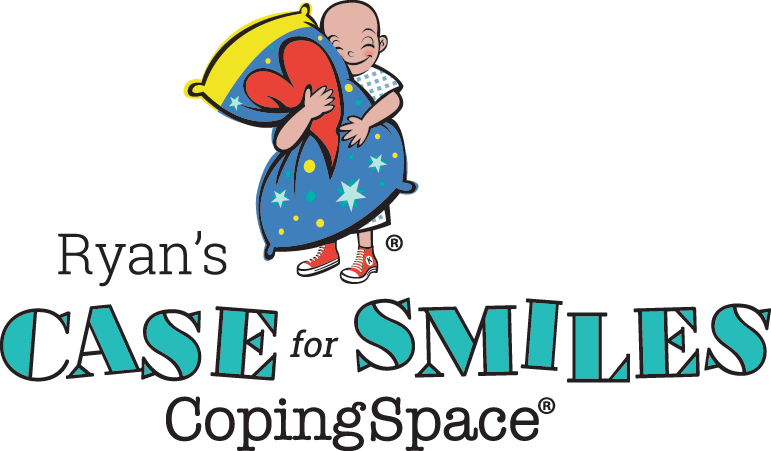BLOG
How to Help Your Child Answer Questions About Their Cancer or Serious Illness
 Returning to school after a long absence or recent diagnosis can spur a lot of questions for your child about their cancer, illness or injury. And if there are changes in their appearance or mobility, the questions may be ongoing. Kids are naturally curious, and friends, peers and strangers may all wonder what happened and what it all means.
Returning to school after a long absence or recent diagnosis can spur a lot of questions for your child about their cancer, illness or injury. And if there are changes in their appearance or mobility, the questions may be ongoing. Kids are naturally curious, and friends, peers and strangers may all wonder what happened and what it all means.
While completely normal, these questions can be frustrating and overwhelming for your child. They may not want to be treated differently, or simply not know what to say. Preparing your child to answer questions in advance can help. Talking through responses builds children’s confidence and offers an opportunity to answer any lingering questions they have themselves.
How to Prepare Your Child to Answer Questions About Their Cancer, Illness or Injury
“What happened to you?” “Where have you been?” “Why do you look that way now?” Long absences, appearance changes and scary words like cancer, diabetes and surgery can draw a lot of attention. Upon returning to school, your child may be asked what happened to them or if their condition is contagious. Classmates and friends may also stare, tease or even ask if they are going to get better. This is challenging for any child. Below are a few simple steps to help them feel more in control and ready to manage any questions that come their way.
Help Your Ill or Injured Child Set Ground Rules for Answering Questions
 The first thing for any child to understand is that they are in control of who they talk to and what information they share. This is true about their condition, as well as anything else in their life. Reassure them it’s always okay to say they don’t want to talk about something, change the subject or defer to an adult.
The first thing for any child to understand is that they are in control of who they talk to and what information they share. This is true about their condition, as well as anything else in their life. Reassure them it’s always okay to say they don’t want to talk about something, change the subject or defer to an adult.
Next, brainstorm some common questions with your child and help them think through which they will answer, who they will give answers to, and what details they will share. This will likely change day to day depending on their mood, recent experiences and health. But giving it some thought in advance will give them a good place to start.
Prepare Responses to Common Situations
The next step is to prepare simple answers to common questions your child may face. This should include responses for the times they choose to answer, as well as when they’d rather not. While some kids will already have a general idea of what they wish to say, preparing the exact words can really boost their confidence.
Make sure their responses are age-appropriate and use simple terms other children can understand. It’s best to avoid complicated medical terms or formal words your child would not usually say. For example, if asked what happened, your child could briefly talk about their illness or injury.
“I have cancer and I had to go to the hospital so the doctors could help my body fight it off”. Or, “I was hurt but the doctors and nurses helped me and now I’m feeling better.” They might also remind people they’re still the same person they were beforehand. Or of course, they can simply say, “I don’t want to talk about that right now,” and walk away.
If you’re struggling to come up with responses, a child life specialist, nurse or other members of your child’s medical team may have suggestions to help. You can also find suggested response and additional tips in the “Preparing Your Child to Address Questions” section of the Caregiver page.
Finally, while we hope it never occurs, this is a good time to remind your child to leave a situation if they are very uncomfortable or feel in danger, and to tell someone that they are being picked on right away. Unfortunately bullying happens and it’s best to have your child prepared in case it is something they face.
Create a Support Plan
 While your child should be equipped to answer questions on their own, it’s always good to have a designated adult for support if answering becomes too difficult, too uncomfortable or if bullying or teasing get out of hand. A caregiver or other family member typically plays this role at home and on weekends. However, at school it’s helpful to have a teacher, counselor or other school staff person who can help.
While your child should be equipped to answer questions on their own, it’s always good to have a designated adult for support if answering becomes too difficult, too uncomfortable or if bullying or teasing get out of hand. A caregiver or other family member typically plays this role at home and on weekends. However, at school it’s helpful to have a teacher, counselor or other school staff person who can help.
Ask your child to choose an adult they trust, then reach out to speak with them about the plan. Let them know about your child’s condition if you haven’t done so, and what information it is okay to share. You may also wish to direct them to CopingSpace’s School page where they can find additional information and tips on how best to support your child. Finally, be sure to check in regularly and provide any new information if their condition, treatment and preferences change.
Practice Answering Questions About Your Child’s Cancer or Serious Illness
Just like a big presentation, it’s important for your child to practice, practice, practice until they are confident with their responses and communication plan. They can rehearse in front of a mirror or with family members and close friends. Have them continue to practice until it feels natural, and they know exactly what they want to say. Then revisit their responses after they’ve tried them out a few times or their condition, appearance or treatment change.
Helping Siblings Answer Questions About Their Brother or Sister’s Illness or Injury
Siblings of children with cancer and other illnesses also face questions about their sister or brother’s condition – perhaps even more than the impacted children
themselves! Well-meaning friends, family members and strangers often use siblings as the family’s representative, mistakenly thinking they are less affected, or the ones who have the answers and the time. This can be uncomfortable and frustrating for a child who just wants to be a normal kid.
All of the above tips for answering questions about cancer and other illnesses apply to siblings. They may also face questions about their parents, as well as themselves. Have them prepare for a variety of scenarios and make sure they understand their brother/sister’s condition and treatment as best they can.
It’s also important to reassure them they don’t have to answer any questions and can say speak up if that’s all a person wants to discuss. Useful phrases include, “I don’t really want to talk about [sibling’s name] right now, can we please do something else?”; “It sounds like you have a lot of questions about my sister/brother. Can you ask my parents?”; or simply “I don’t want to talk about that.” For more suggested phrases and tips for siblings, visit the Coping Tips for Sibling page.
Finally, it can be incredibly helpful to siblings to make clear how updates will be provided and who the correct contact person is. You might send information with a group email or text, create a designated social media account, or set up a webpage. This way concerned friends and family know where to go for information, and you can redirect questions away from your child who is well.
Answering questions about a child’s illness or injury can be overwhelming for any kid and even adults. And sometimes, it may feel like the questions never stop. But with support, practice and a little planning, it does get easier. And with these tips your child/children will be better set up for a good start to the new school year.
Additional Information on Supporting Children With Cancer and Other Illnesses at School
Additional information, tips and resources to support your child at school while managing an illness or injury can be found on the following pages.
Going Back to School: Helping Your Child Return to School After a Long Absence
